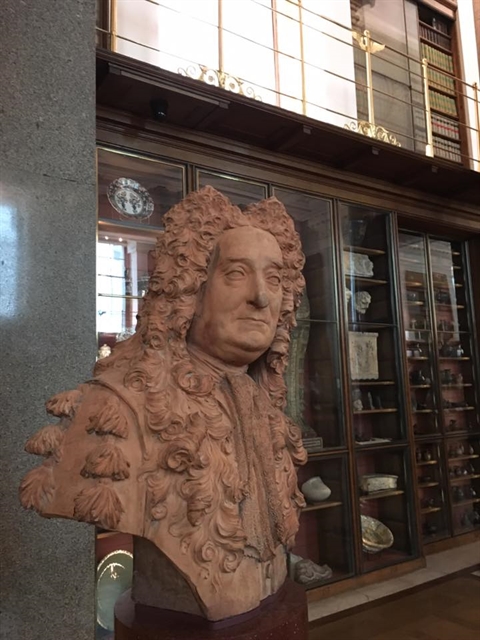 Life & Style
Life & Style


|
| The British Museum has removed a bust of its slave-owning founder Hans Sloane from display on August 25, 2020. — Photo Milena Enghis Khan Facebook |
LONDON — The British Museum has moved a bust of its founder Sir Hans Sloane to an "Enlightenment Gallery" because of his links to slavery, officials said on Tuesday.
The likeness of Sloane in the central London landmark has been put alongside other artefacts explaining they were collected through the slave economy at the time of the British Empire.
"Dedication to truthfulness is crucial, when we face our own history," said Hartwig Fischer, museum director, in a statement to AFP.
"We have taken the bust of Hans Sloane from its pedestal and placed him in the limelight in a case in the centre of the Enlightenment Gallery, acknowledging his relationship to slavery and the slave trade."
It added that Sloane's work showed the "complexity and ambiguity" of the period he lived in as he was a scholar and benefactor as well as a slave owner.
Sloane, who lived in the seventeenth and eighteenth centuries, was married to a Jamaican sugar plantation heiress.
As well as his collections, Sloane's name has been used for various places across London including Sloane Square in the upmarket district of Chelsea.
The decision to remove the bust comes as Britain grapples with its slave and imperial past in the light of the Black Lives Matter protest movement, sparked by the death of George Floyd in the United States.
Protesters toppled a statue to a slave trader in Bristol, and an Oxford University monument to colonialist Cecil Rhodes is also set to be replaced following demonstrations.
Earlier this week, a row broke out over plans for orchestral reworkings of the patriotic anthems Rule Britannia! and Land of Hope and Glory at the annual Last Night of the Proms music festival for fear of a public backlash because of the music's associations with colonialism and slavery. — AFP









